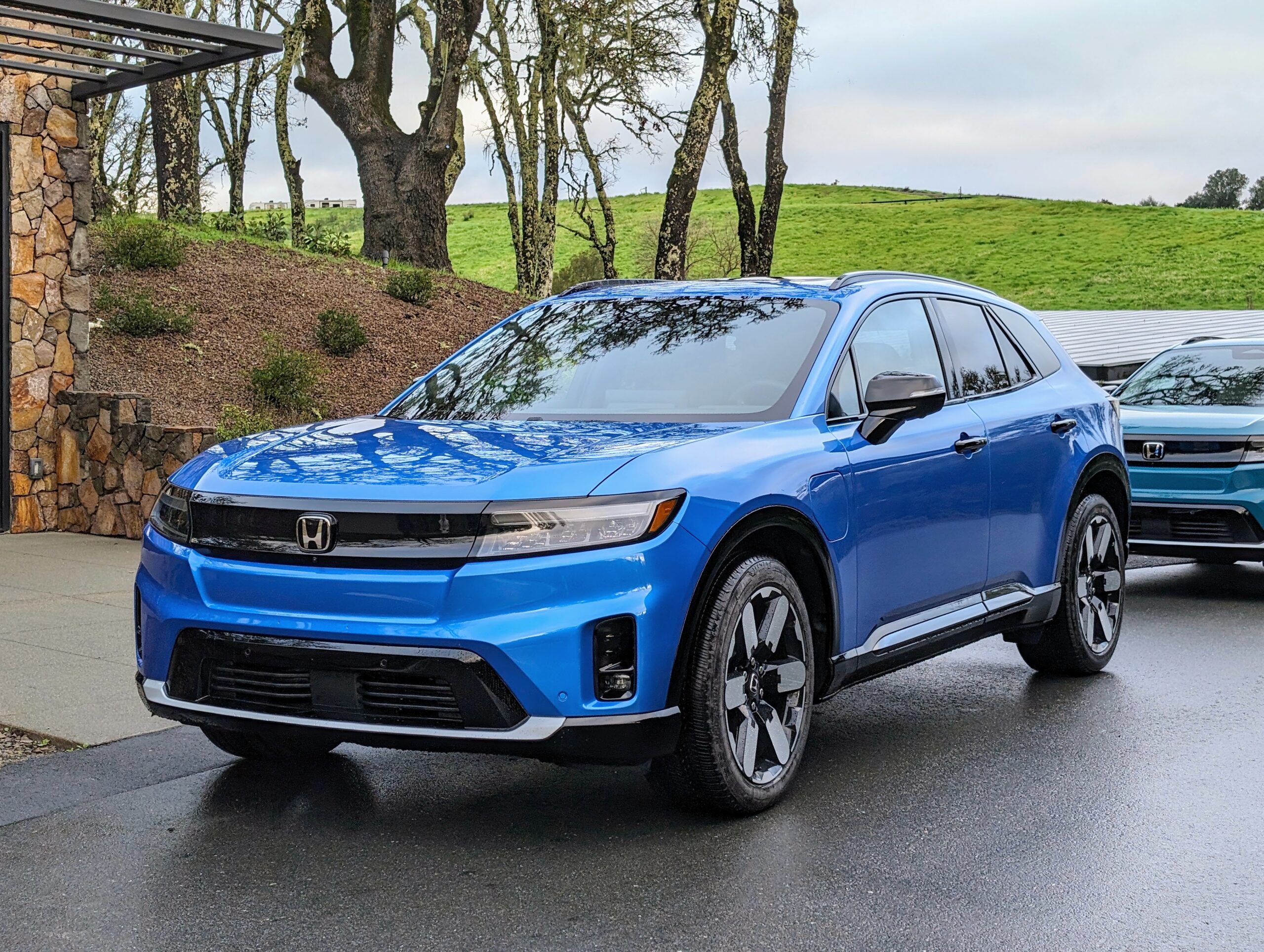Sign up for daily news updates from CleanTechnica on email. Or follow us on Google News!
Toyota is at it again, bashing electric car policies as it has done consistently for the past decade or more. On November 8, 2024, during a virtual press conference, Jack Hollis, the chief operating officer for Toyota Motor North America, told reporters the electric vehicle mandates that are set to start next year in California and other states are “impossible” to meet. If they’re not changed, he said, they will lead to less customer choice in several states. Current requirements under the California Air Resources Board’s “Advanced Clean Cars II” regulations call for 35% of 2026 model year vehicles, which will start appearing in showrooms next year, to be zero-emission vehicles, or ZEVs. Battery electric, fuel cell, and some plug-in hybrid vehicles qualify as zero emission under the regulations.
Toyota Says CARB Rules Are Impossible
“I have not seen a forecast by anyone — government or private — anywhere that has told us that that number is achievable. At this point, it looks impossible. Demand isn’t there. It’s going to limit a customer’s choice of the vehicles they want,” Hollis said, according to a report by CNBC. That means the official position of Toyota Motor Company is that the seas may close over the world’s major cities; millions of people worldwide can die from excessive heat, wildfires, and droughts; and powerful hurricanes can impact millions more people, but Toyota thinks nothing substantive should be done about it because people should be free to drive big gas guzzling cars and trucks because it’s in The Bible, or The Constitution, or maybe both of them. Good to know, Jack. You are a true capitalist hero, sir.
Hollis is clearly reacting to the results of the most recent US election and trying to egg on the next occupant of the Offal Office in his quest to punish the state of California and its nearly 40 million residents for daring to address the threat of an overheating planet in any meaningful way. Twelve other states and the District of Columbia have adopted the zero emissions framework created by the California Air Resources Board. About half are deferring the 35 percent rule until 2027 model-year vehicles are introduced.
J.D. Power said no states are in accordance with the EV mandate as of this year. Only California, Colorado, and Washington have reported that 20 percent of new car sales have been battery electric or plug-in hybrids this year. Other states such as New York (12 percent), New Mexico (5 percent), and Rhode Island (9 percent) are far away from being compliant. The national average of EV and plug-in hybrid adoption for retail sales is only 9 percent through October, J.D. Power said on November 8.
Toyota Warns Of “Unnatural Acts”
Hollis said if the mandates are unchanged, it will lead to “unnatural acts” in the automotive industry that have already begun at some automakers, where companies are supplying states which have agreed to the rules with a disproportionate amount of electrified models. Gracious! Unnatural acts? That’s a rather provocative statement by Hollis. “It’s going to distort the industry. It’s going to distort the business. Why? Because it’s unnatural to what the current demand in the marketplace is,” Hollis, a longtime automotive executive, said. He apparently is blissfully unaware of the unnatural acts sweeping the world as global heating threatens all of humanity. As long as there is money to pay his enormous salary, Jack Hollis is a happy camper and the rest of the human race can take a long walk off a short pier, as far as he is concerned.
Several automotive insiders previously told CNBC that the EV mandate issue needed to be addressed regardless of who won election this year. In the first Trump administration, a legal battle ensued to revoke states’ ability to set their own emissions standards. Several officials expect Trump to renew that push once he is back in the White House. Hollis said that he “hopes it doesn’t come to that” this time around, and that the states, federal government, and the auto industry can come to a resolution. He also said Toyota would prefer one national standard — a sentiment many automakers previously shared.
“We would always want a 50 state rule, because that way we can treat all customers, all dealers, equally, fairly, whatever that might be,” Hollis said. “Our hope would be is that California and [the Environmental Protection Agency] would match up, and it would be reduced down to something that is achievable. Even if it’s a push, even if it’s a reach, but at this point, it’s an impossible stage.”
States Rights
Hollis, naturally, is going where his paycheck leads, but he seems blissfully ignorant of the current political landscape in the United States, which strongly favors “states rights” — a belief system that has been part of the fabric of American governance since the nation was formed. That manner of thinking was the primary reason that the southern states withdrew from the Union and formed the Confederacy in order to preserve the notion that some people were entitled to own other people and force them to work for them for no pay. The Civil War was largely about whether slavery would be permitted in the western territories that were not yet states and were about to be admitted to the nation.
California’s push to curb exhaust emissions from cars and trucks dates back to the 1950s, when Los Angeles was often enveloped in what came to be known as smog — atmospheric miasma of ozone, carbon monoxide, carbon dioxide, and oxides of nitrogen that formed when the effluent from hundreds of thousands of cars, trucks, and buses hovered over the city and were irradiated by the sun. California believes it has the power under the Constitution to protect its citizens from unhealthy air, but the incoming president disagrees. At the same time, he and the members of his political party believe that states should have the power to decide how and when a woman manages her own healthcare, which makes her body subject to the power of the state.
The constant drumbeat of calls by extremists on the right to allow states to do whatever they deem fit and proper while the federal government concerns itself solely with the defense of the nation and little else is very popular today, but is in direct conflict with the notion that California should be free to protect its citizens from unhealthy air and the ravages visited upon it by a rapidly overheating planet.
The problem Jack Hollis has is that he sees only a small part of a much larger picture. Of course manufacturers want one standard. Building cars to meet different rules costs money, but by Hollis’ logic, the whole world should adopt one standard, which would save manufacturers boatloads of cash. Perhaps corporate profits should not be the sole determining factor in setting regulations and Jack Hollis should go back to high school to complete the civics lessons he seems to have missed.

Chip in a few dollars a month to help support independent cleantech coverage that helps to accelerate the cleantech revolution!
Have a tip for CleanTechnica? Want to advertise? Want to suggest a guest for our CleanTech Talk podcast? Contact us here.
Sign up for our daily newsletter for 15 new cleantech stories a day. Or sign up for our weekly one if daily is too frequent.
CleanTechnica uses affiliate links. See our policy here.
CleanTechnica’s Comment Policy




